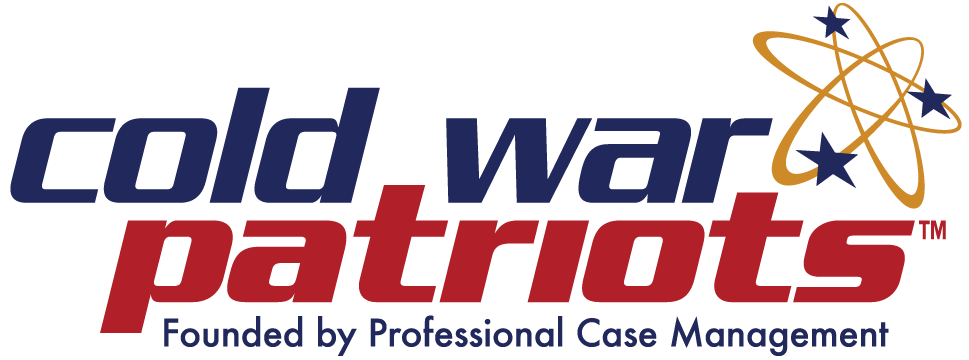
| CWP
6 tips to help you choose the right home healthcare provider
April 26, 2023
April 26, 2023
CWP
You may have recently learned that your service as a nuclear weapons or uranium worker has entitled you to free home healthcare services under the provisions of the Energy Employees Occupational Illness Compensation Program Act (EEOICPA). While you may not have any health concerns today, it might also be the case that a chronic illness that you’ve had for a while, like COPD, has progressed to a point where you need a healthcare provider to check in on you periodically. Or maybe the family members who previously cared for you are now struggling with their own health problems and are no longer able to provide continuous care.
If you’re in situations like these, choosing a home healthcare provider can be a daunting task if you don’t know what to search for or what questions to ask a prospective provider.
Cold War Patriots (CWP), the longest-serving organization dedicated to serving the interests of workers involved in helping to build our nation’s nuclear defenses, is here to help. As a division of Professional Case Management (PCM), the first home care provider to be enrolled under the EEOICPA, CWP provides a wealth of resources to help nuclear defense workers navigate the complexities of the EEOICPA application process and maximize their benefits.
Among our wealth of other resources, you can use this information and our six tips for choosing a healthcare provider which will walk you through the various benefits of home healthcare and what to look for in a provider when you begin your search.
What’s the benefit of home healthcare?
If home healthcare is an option your doctor has presented to you, take some comfort knowing the benefits of home healthcare are many. Individuals often report experiencing a more relaxed treatment experience in the comfort of their own home than they likely would in a specialized facility. Home healthcare also makes it easier for friends and family to visit since visiting hours don’t exist.
Research has also indicated that in-home care produces better health outcomes, as it reduces the risk of re-hospitalization or contagious infection.
Of course, home healthcare is a deeply personal decision–one that often impacts family and loved ones, though families often report greater peace of mind knowing their loved ones are comfortable at home and receiving professional, compassionate and personalized care. That’s why family members are encouraged to take part in choosing a home healthcare provider and team.
How do I know if I need home healthcare?
Most patients who require home healthcare suffer from chronic illness, like heart disease, cancer or chronic beryllium disease. Depending on the diagnosis, home healthcare provides those patients with avenues toward recovery and independence or the ability to maintain overall level of function.
“Not all providers are the same, however,” says Tim Lerew, vice president at PCM. “For example, PCM not only provides quality care in the comfort and convenience of your home but, through our CWP division, we also advocate for worker rights, compensation, and recognition. We have a deep understanding of the unique care needs of workers who have contracted chronic illnesses related to their efforts in supporting America’s nuclear defense.”
Another factor worth considering is how home healthcare complements the support provided by loved ones. Professional caregivers take on your day-to-day care needs allowing your loved one to tackle other responsibilities, pursue personal goals, and spend more time with you. In many ways, homecare improves not only your quality of life, but your family’s life as well.
How do I know if I qualify for home healthcare?
There’s a good chance you are familiar with home healthcare rules associated with Medicare and other government health insurance programs. Eligibility often means you must:
- Receive home healthcare through a doctor’s order
- Require skilled nursing or therapy services on an intermittent basis
- Meet the definition of homebound
You may also encounter additional requirements and qualifications with some home health agencies and insurance plans.
But there are exceptions, especially if you have a Department of Labor (DOL) white medical benefits card. For example, card holders do not need to be homebound to receive help through providers like PCM. White card holders also receive access to specialist doctors, like oncologists, pulmonologists, and others, for free with no copays or deductibles.
“Our mission is to help patients maintain their independence while getting the care they need,” says Lerew. “PCM tailors homecare to your specific needs so you can continue living your best life at home without interruptions. We even provide monthly visits to help establish you with the DOL, which will allow you to work with an RN who you know and who knows your specific care needs.”
What should I expect from home healthcare services?
Home healthcare typically begins with a visit from your provider’s clinical staff. For example, after you express interest in receiving care and a member of our team consults with your physician, PCM medical staff will visit your home to conduct a comprehensive assessment of your healthcare needs. This includes talking with loved ones and understanding your personal health goals. The staff will then work with your physician to determine the best care plan for you.
Once everyone is in agreement – you, your doctor, and your home healthcare provider – your tailored plan will begin. This may include monthly, weekly, or daily visits, depending on your individual circumstance, for a range of services, from assistance with personal activities like hygiene or dressing to wound management.
6 tips to help you choose the right home healthcare provider
To help you choose the right home healthcare provider, use these six tips.
1. Make sure your provider offers the services you need
While most home healthcare providers focus on nursing services, make sure you know what other services they provide. Do they assist with personal care, like meal preparation and light housekeeping?
Ask how your provider coordinates with other caregivers, your primary care physician, and medical specialists. Find out how they can address care gaps and ensure your doctor’s orders are followed. Will your case managers or other staff accompany you to medical appointments and walk family members through a diagnosis and treatment options to make sure you get the best care available?
The more you understand about the services provided to you, the more you can take advantage of those services.
2. Make sure your homecare provider is accredited
Accreditation is an important way to measure the quality of provider services, so you know you’re getting the best care in the industry. It also provides:
- Quality assurance, ensuring your provider meets certain quality of care and safety standards
- Knowledge that the agency is in compliance with federal, state and local regulations
- Patient satisfaction by assuring the agency is focused on quality care
In the home healthcare field, one of the most prestigious accreditations comes from the Accreditation Commission for Health Care (ACHC). PCM was one of the first providers in the industry to receive ACHC accreditation.
3. Learn how your provider’s employees are selected and trained.
Does your provider employ registered nurses and licensed practical nurses? Aides and attendants? Are they employees of the agency or contractors? If they are contracted health professionals, how does the provider ensure quality service and client safety? And who is liable if they get hurt in your home?
“You don’t want just anyone in your home,” says Lerew. “That’s why PCM conducts thorough criminal and general background checks, including random drug testing, on all our nurses and caregivers. And, since we directly employ our team, we ensure they all receive the same level of specialized training. That way, they’re prepared to respond to challenges in the home and provide the best care possible.”
4. Ask if the provider allows family members to provide care
Often family members know more about your healthcare needs than anyone else beyond your physician, and they often want to help manage your care. Some providers, like PCM, embrace that idea, as long as the family member is qualified and your condition allows for it.
“We have a significant number of family members providing care to their loved ones,” says Lerew. “PCM hires, trains, employs, and manages family and close family friends to provide care at the same level of our attendant nurses and caregivers. And the good news is they may be able to get paid for providing these services as part of your EEOICPA benefits.”
5. Ensure your provider protects your private information
Is your home healthcare provider taking the appropriate steps to protect your private health information? To find out, ask for a review – and a copy – of their privacy policies and make sure they are using secure communication channels whenever they share your information with your designated healthcare team.
Providers are required to comply with the Health Insurance Portability and Accountability Act (HIPAA) Privacy Rule, so you should make sure that your healthcare provider is HIPAA compliant. PCM is HIPAA compliant and private information is never shared with others.
6. Ensure your provider is an expert in EEOICPA
EEOICPA, which became effective in July 2001, was created to provide monetary compensation and free healthcare benefits to nuclear weapons workers who got sick because of their workplace exposure. If your home healthcare needs are a result of your career in nuclear weapons work, ask your provider to walk you through their understanding of EEOICPA benefits and administration to ensure you’re getting the best healthcare services available. PCM focuses exclusively on serving EEOICPA-eligible workers.
EEOICPA benefits are administered by the U.S. DOL. Qualifying beneficiaries include employees, contractors, and subcontractors who worked at any of the U.S. Department of Energy or Atomic Weapons Employer facilities covered under this program.
CWP can assist you in establishing with a DOL-enrolled physician who will enable you to keep your private healthcare team and employ a single physician to case manage your EEOICPA-related needs. This allows your private physicians to maintain their focus in the care areas with which they are most familiar.
How PCM can help you get the home healthcare you deserve?
PCM does more than provide homecare. Caring for the health and personal needs of nuclear weapons and uranium workers covered by EEOICPA is our specialty, and more than 97% of our clients say they are highly satisfied with our service.
Ready to learn more? Visit our website or contact PCM.
